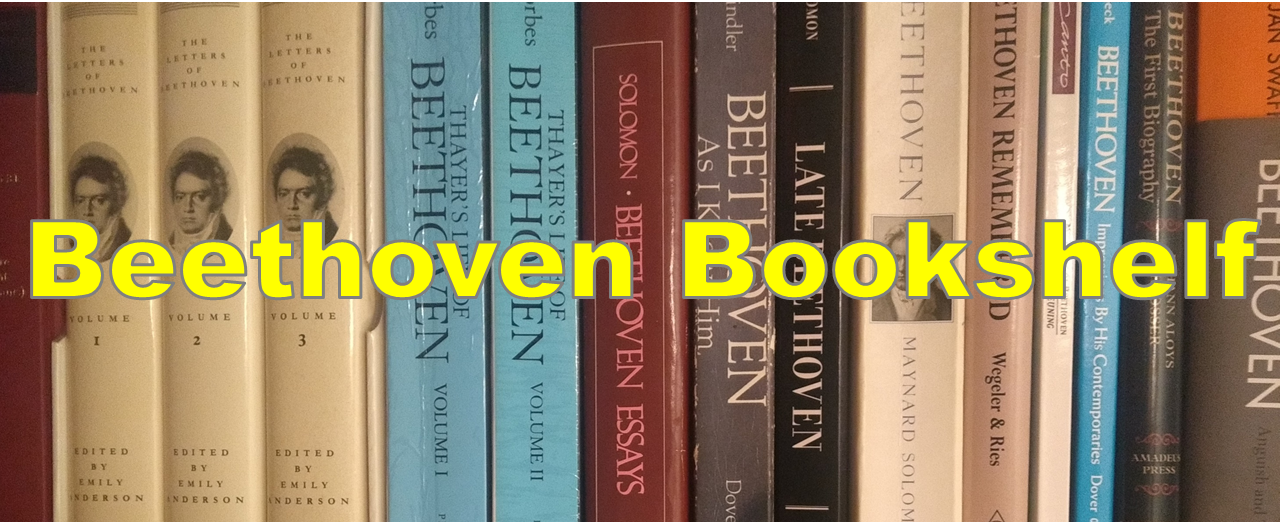
Some things I dug up while researching my novel Beethoven's Assassins.
Beethoven in Fiction
When was Beethoven born?
What caused his deafness?
Who was the “Immortal Beloved”?
Why "Moonlight" Sonata?
Was Beethoven a Freemason?
What was the "Incident at Teplitz"?
Why "Hammerklavier" Sonata?
Who first played the Hammerklavier Sonata?
Bibliography
Beethoven seems to have begun noticing hearing problems in his late twenties, around the time when he moved from Bonn to Vienna. He also had chronic bowel problems, and thought there was a connection. He described his plight in a letter to his friend Franz Wegeler, dated 29 June, 1801.1
"But that jealous demon, my wretched health, has put a nasty spoke in my wheel; and it amounts to this, that for the last three years my hearing has become weaker and weaker. The trouble is supposed to have been caused by the condition of my abdomen which, as you know, was wretched even before I left Bonn, but has become worse in Vienna where I have been constantly afflicted with diarrhoea and have been suffering in consequence from an extraordinary debility. Frank tried to tone up my constitution with strengthening medicines and my hearing with almond oil, but much good did it do me! His treatment had no effect, my deafness became even worse and my abdomen continued to be in the same state as before. Such was my condition until autumn of last year; and sometimes I gave way to despair. Then a medical asinus advised me to take cold baths to improve my condition. A more sensible doctor, however, prescribed the usual tepid baths in the Danube. The result was miraculous; and my inside improved. But my deafness persisted or, I should say, became even worse. During this last winter I was truly wretched, for I had really dreadful attacks of colic and again relapsed completely into my former condition. And thus I remained until about four weeks ago when I went to see Vering. For I began to think that my condition demanded the attention of a surgeon as well; and in any case I had confidence in him. Well, he succeeded in checking almost completely this violent diarrhoea. He prescribed tepid baths in the Danube, to which I had always to add a bottle of strengthening ingredients. He ordered no medicines until about four days ago when he prescribed pills for my stomach and an infusion for my ear. As a result I have been feeling, I may say, stronger and better; but my ears continue to hum and buzz day and night."
Beethoven’s hearing loss was gradual – most of his works were written while he could still hear well enough to conduct normal conversations. His last public appearance as a pianist was in 1814, performing the Archduke Trio, Opus 97. 2 Critics thought his playing below par, and assumed it was because of deafness, however one audience member – Anton Schindler – thought otherwise. "Beethoven’s hearing was apparently entirely adequate; not so, though, the ability of his fingers."3 The following year, an English visitor had no difficulty making himself understood if he spoke into Beethoven’s ear,4 however by 1818 ordinary conversation was virtually impossible.5 The young son of Beethoven’s friend Stephan von Breuning saw the composer many times after August 1825, and on one occasion was sent to see why Beethoven had failed to show up for dinner. "I found him at his desk, facing the open door to the piano room, writing one of his last (Galitzin) quartets. He looked up and told me to wait a bit, until he had put his idea down on paper. I was quiet for a while and then went over to the Graf piano (with the added amplifying apparatus), which was nearest, and began to strum lightly on the keys, not being convinced that Beethoven was deaf to musical tones. I kept looking in his direction to see whether he might be feeling bothered. When I saw that he was completely unaware of it, I played louder, and intentionally quite loudly – and I had no more doubts. He heard nothing and kept on writing, unconcerned, until finally he was finished and came out with me. On the way he asked me something; I shouted the answer right into his ear, but he understood my signs more than my words. One time, though, at dinner in our house one of my sisters let out a high piercing shriek, and the fact that he had heard it after all made him so happy that he laughed out loud, showing his brilliant white full rows of teeth."6
A review of modern medical opinions7 notes that Beethoven’s bowel problems could indicate an inflammatory condition such as ulcerative colitis or sarcoidosis, and if linked to an underlying immune disorder like lupus then that might have provoked hearing loss. However the chief suspects are auditory nerve damage or bone disorder – maybe otosclerosis or Paget’s disease. Chronic lead poisoning – perhaps from additives in white wine – and tertiary syphilis have also been proposed; the former from hair analysis, the latter from rumoured prescriptions of mercury. Throw in childhood smallpox, typhoid, close contact with tuberculosis, possible asthma, eye problems, rheumatism, gout and finally the liver disease that killed him, and it’s a wonder that Beethoven lasted as long as he did.
References
1. Anderson, pp59-60
2. Thayer-Forbes, p578
3. Schindler-MacArdle, p173
4. Thayer-Forbes, p620
5. Thayer-Forbes, p690
6. Breuning, p72
7. Thomas et al
